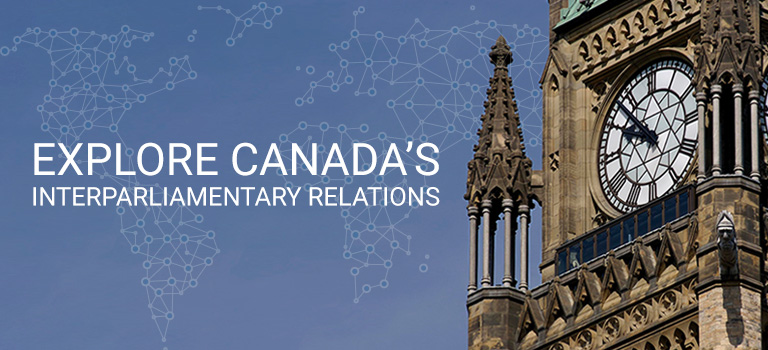Interparliamentary Activities and Reports
Refine your search
Results: 1001 - 1004 of 1004
July 10, 2020
Build Back Better: A Green and Sustainable Economic Recovery - By videoconference - Canadian Section of ParlAmericas (CPAM)
Diego Paulsen, President of Chile’s Chamber of Deputies, and Elizabeth Cabezas, President of ParlAmericas and a member of Ecuador’s National Assembly, provided welcoming remarks. Ana Belén Marín, President of ParlAmericas’ PNCC and a member of Ecuador’s National Assembly, moderated a session at which the following individuals made presentations: Leo Heileman, Regional Director of the Latin America and the Caribbean Office of the United Nations Environment Programme (UNEP); Raúl Salazar, Head of the United Nations Office for Disaster Risk Reduction Regional Office for the Americas and the Caribbean; and Brian O’Callaghan, a researcher at the University of Oxford’s Smith School for Enterprise and the Environment.
Mr. Heileman began by noting the high number of zoonotic diseases that have emerged in recent years, attributing their increased frequency to human impacts on the natural environment. In characterizing climate change as a larger crisis than COVID-19, he suggested that now is the time to "reactivate" the economy, generate “decent” work and try to meet the needs of the most vulnerable groups. Mr. Heileman outlined several areas that UNEP has identified as having the potential to help reactivate the economy while benefitting the climate. These include: rural, agricultural and ecosystem resilience; urban resilience; renewable energy and energy efficiency; and the transition to electric vehicles and e-mobility.
Mr. Salazar spoke about the double impact of COVID-19 and climate disasters – such as heavy rain, powerful tropical storms and droughts that are more intense, frequent and widespread – in numerous countries in the western hemisphere. In his view, governments must take an integrated, intersectional approach to risk management. He also described actions that could reduce vulnerability and enhance resilience in general, and outlined some roles for parliaments in applying disaster risk reduction approaches and supporting investments in climate change adaptation.
Mr. O’Callaghan summarized the results of his recent study on the possible benefits of a "clean" recovery from the COVID-19 pandemic; the study was based on a review of stimulus policies from the 2009 global financial crisis and a survey of more than 230 economists from the G20 countries. His study concluded that climate-related spending could enhance economic growth during the recovery from the pandemic. Mr. O’Callaghan emphasized the importance of using stimulus spending to achieve long-term climate objectives and not just short-term gross domestic product growth.
Paola Vega, Vice-President (Central America) of ParlAmericas’ PNCC Change and a member of Costa Rica’s Legislative Assembly, gave closing remarks.
July 9, 2020
Extraordinary Session of the International Executive Committee of the IPU
By videoconference
Canadian Group of the Inter-Parliamentary Union (UIPU)
July 8, 2020
Meeting of the APF Education, Communication and Cultural Affairs Committee
By videoconference
Canadian Branch of the "Assemblée parlementaire de la Francophonie" (CAPF)
July 8, 2020
Meeting with the European Parliament's Delegation responsible for Relations with Canada
By videoconference
Canada-Europe Parliamentary Association (CAEU)
Results: 1001 - 1004 of 1004 — Page: 101 of 101


